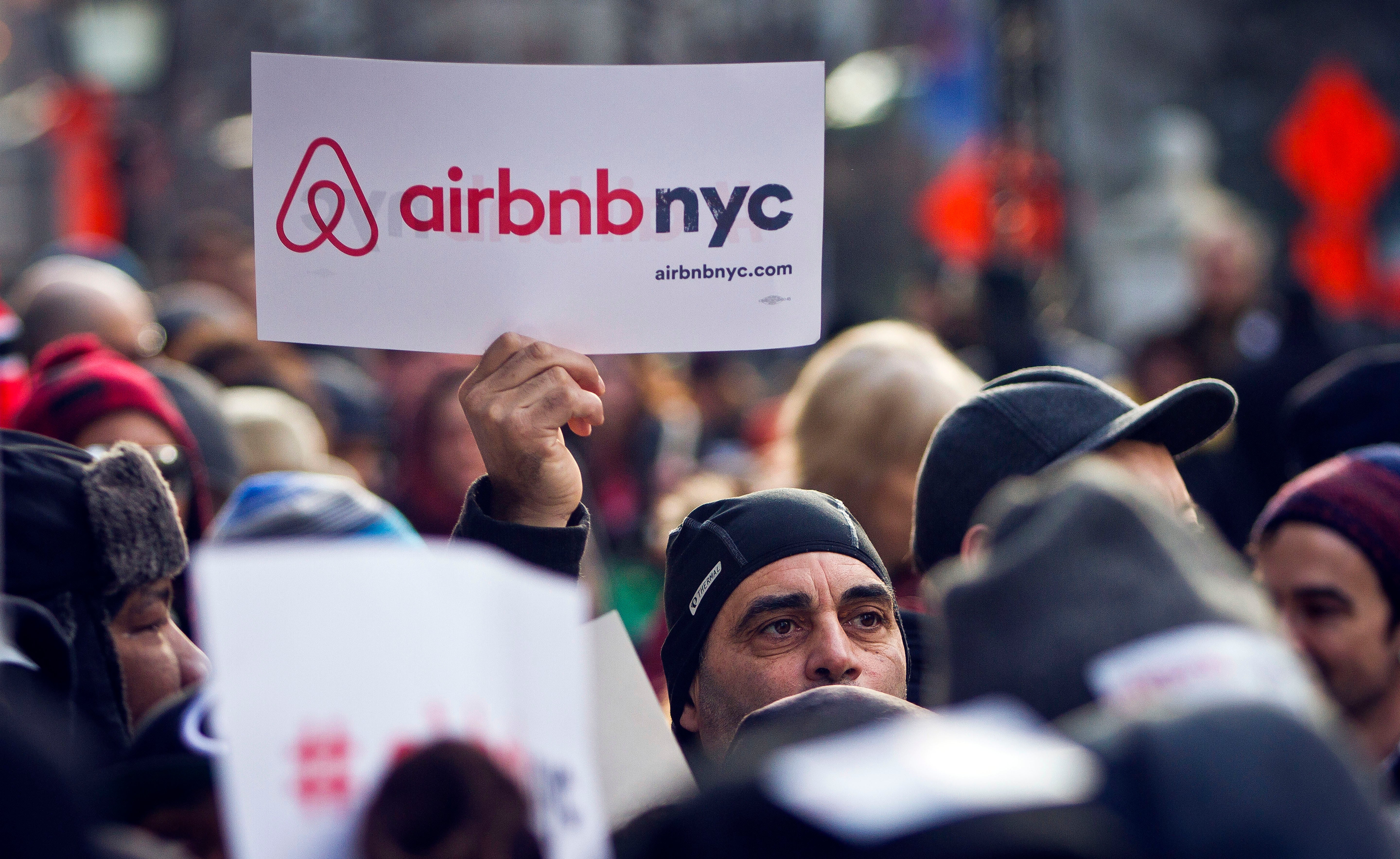NYC Airbnb crackdown: Reservations dry up in New York after short-stay rental rules come into effect
New regulations on short-term rentals have gone into effect in New York City

Your support helps us to tell the story
From reproductive rights to climate change to Big Tech, The Independent is on the ground when the story is developing. Whether it's investigating the financials of Elon Musk's pro-Trump PAC or producing our latest documentary, 'The A Word', which shines a light on the American women fighting for reproductive rights, we know how important it is to parse out the facts from the messaging.
At such a critical moment in US history, we need reporters on the ground. Your donation allows us to keep sending journalists to speak to both sides of the story.
The Independent is trusted by Americans across the entire political spectrum. And unlike many other quality news outlets, we choose not to lock Americans out of our reporting and analysis with paywalls. We believe quality journalism should be available to everyone, paid for by those who can afford it.
Your support makes all the difference.Home-sharing giant Airbnb said it has had to stop accepting some reservations in New York City as new regulations on short-term rentals went into effect Tuesday that will mean big changes for travelers hoping to avoid the high cost of a Big Apple hotel.
The new rules are intended to effectively end a free-for-all in which city landlords and residents have been renting out their apartments by the week or the night to tourists or others in town for short stays.
Under the new system, rentals shorter than 30 days are only allowed if hosts register with the city. Hosts must commit to being physically present in the home for the duration of the rental, sharing living quarters with their guest. More than two guests at a time are not allowed, either, meaning families are effectively barred.
Platforms such as Airbnb, VRBO and others are not allowed to process rentals for unregistered hosts — and as of early this week, few had successfully registered. The city says it has approved just under 300 of the more than 3,800 applications received.
Officials and housing advocates who had pushed for the restrictions said they were necessary to stop apartments from becoming de facto hotels.
“In New York City, residential apartments should be for residential use,” said Murray Cox of Inside Airbnb, a housing advocacy group that collects data about the company’s presence in cities around the world.
Airbnb has fought the rules in court, arguing they were essentially a ban, and that they would hurt visitors looking for affordable accommodations.
But since Aug. 21, the company — which had 38,500 active non-hotel listings in New York City as recently as January — said it had stopped accepting new short-term reservations from any host who hadn’t provided either a city registration number or documentation that it was in process. It said once the city’s verification system was fully up and running, no short-term listing would be allowed on its site without a registration number.
Some hosts of smaller homes said they were being unfairly targeted and lumped in with larger apartment buildings.
“I think this is a huge indication that our elected officials have let us down,” said Krystal Payne, who lives in a two-family home in Brooklyn and had been renting out one of the apartments to help pay her mortgage.
The regulations were adopted by the city in January of last year but were held up by legal action until last month.
While online rental listing services gave travelers more options in New York — and were a financial windfall to residents who rented out their homes while away on vacation — they have also led to complaints about scarce housing in residential neighborhoods being gobbled up by tourists.
Regular tenants complained about buildings that suddenly felt like hotels, with strangers in their hallways and occasional parties in rented units. Investors snapped up units in condominium buildings, or whole townhouses, then made a fortune doing nightly rentals prohibited by law.
“Registration creates a clear path for hosts who follow the city’s longstanding laws and protects travelers from illegal and unsafe accommodations, while ending the proliferation of illegal short-term rentals," Christian Klossner, executive director of the city's Office of Special Enforcement, said in a statement.
In guidance posted after the legal decision last month, Airbnb told New York City hosts that they should either register with the city or convert to hosting long-term stays if possible. The company also said any existing short-term reservation with a check-in by Dec. 1 would be allowed to go forward, with processing fees refunded, while those with check-in dates after that would be canceled and refunded.
Airbnb's global policy director, Theo Yedinsky, called the rule changes a blow to “the thousands of New Yorkers and small businesses in the outer boroughs who rely on home sharing and tourism dollars to help make ends meet.”
“The city is sending a clear message to millions of potential visitors who will now have fewer accommodation options when they visit New York City: ‘You are not welcome,’” he said.


